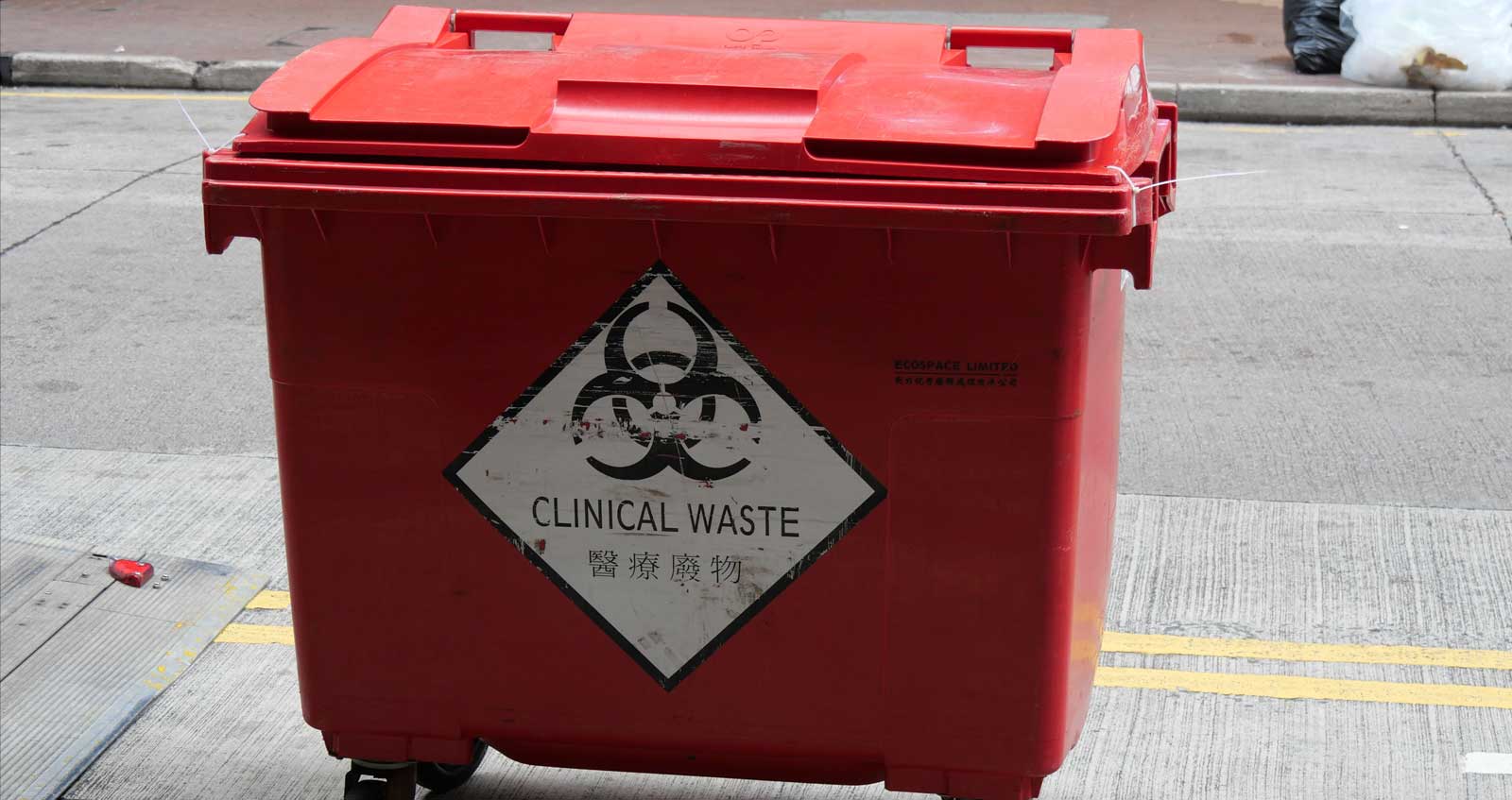Streamlined Medical Waste Disposal Services: Priority for Public Health
Streamlined Medical Waste Disposal Services: Priority for Public Health
Blog Article
Responsible Solutions: Recognizing Medical Waste Disposal Services
In the realm of health care, the correct disposal of medical waste is a crucial element that requires mindful consideration. As health care centers create numerous types of waste that require specialized handling, understanding the nuances of clinical waste disposal solutions is critical.
Importance of Proper Medical Waste Disposal
Appropriate medical waste disposal is critical in maintaining a sanitary and risk-free setting within medical care centers. In health care setups, numerous sorts of waste are produced daily, including transmittable products, sharps, ran out medicines, and chemical materials. Otherwise effectively taken care of, these wastes can present major risks to both medical care employees and the public. Inappropriate disposal can lead to the spread of infections, injuries from sharps, contamination of water sources, and harm to the setting.

Kinds Of Medical Waste
Within medical care centers, a diverse array of waste products identified as clinical waste is created, each requiring particular handling and disposal methods. Medical waste can be classified right into a number of types based on its characteristics and possible risks. Contagious waste, such as made use of societies, swabs, and needles, presents a significant danger of spreading out infections and must be carefully taken care of to avoid any type of possible harm. Contaminated materials consists of chemicals, drugs, and specific products that may be poisonous or responsive. These materials require customized disposal approaches to reduce ecological effect and make certain safety. Pathological waste, which includes tissues, organs, and body components, demands correct disposal to value the dignity of the departed and avoid any biohazards. Pharmaceutical waste, like expired drugs and chemotherapy medicines, need to be disposed of correctly to avoid misuse or environmental contamination. Understanding the different kinds of medical waste is important for healthcare centers to apply efficient waste monitoring techniques and shield public wellness and the atmosphere (Medical Waste Disposal Services).
Laws and Conformity
Medical care facilities must stick to strict regulations concerning the handling and disposal of medical waste to make certain conformity with lawful requirements and secure public health. These policies are implemented to stop the spread of infections, shield the setting, and preserve the security of medical care workers and the public. Numerous governing bodies, such as the Epa (EPA), the Occupational Security and Wellness Management (OSHA), and the Division of Transportation (DOT), have certain standards that healthcare facilities need to adhere to.
To follow these regulations, medical care centers must effectively set apart, store, transport, and dispose of different kinds of medical waste. This includes sharps waste, contagious waste, dig this contaminated materials, and pharmaceutical waste, each needing particular managing treatments. Facilities has to also preserve precise records of waste generation and disposal to show compliance during assessments.
Non-compliance with medical waste policies can lead to serious charges, fines, and damages to the facility's track record. It is vital for health care centers to remain educated regarding the latest policies and implement durable conformity actions to protect public wellness and the setting.
Benefits of Expert Disposal Solutions
Involving professional medical waste disposal services provides medical care centers a trusted and effective option for taking care of hazardous products. These solutions employ qualified professionals who are skilled in taking care of different types of clinical waste, making certain correct segregation, disposal, product packaging, and transport. Medical Waste Disposal Services.
Moreover, specialist disposal solutions make use of state-of-the-art devices and adhere to sector ideal practices to reduce ecological effect and minimize the danger of contamination. This not just advertises a more secure job setting for medical care personnel but also adds to general public health and wellness and security. Furthermore, contracting out clinical waste disposal can lead to cost savings in the future by eliminating the need for internal management and disposal systems.
Lasting Practices in Health Care

One key lasting practice in health care is waste decrease. By executing approaches to decrease unneeded packaging, single-use products, and total waste generation, healthcare facilities can significantly reduce the amount of waste sent to garbage dumps or incineration. Furthermore, recycling programs for products like glass, plastic, and paper can further lower the environmental effect of health care procedures.

Final Thought
Finally, proper medical waste disposal is essential in maintaining a healthy and secure atmosphere for both healthcare workers and the public. Understanding the various kinds of clinical waste, following regulations and conformity criteria, and using specialist disposal solutions are vital action in liable waste monitoring. By embracing click for source sustainable techniques in healthcare facilities, we can reduce ecological effect and guarantee the well-being of all people associated with the medical care market.
As health care facilities create different kinds of waste that require specialized handling, understanding the nuances of medical waste disposal services is critical.Within medical care facilities, a diverse selection of waste products categorized as clinical waste is generated, each needing specific handling and disposal approaches. Understanding the different kinds of medical waste is important for health care centers to implement effective waste administration approaches and protect public wellness and the setting.
By implementing methods to lower unnecessary product packaging, single-use items, and overall waste generation, health care centers can significantly reduce the quantity of waste sent out to land fills or incineration. Understanding the different kinds of medical waste, following policies and compliance criteria, and using specialist disposal solutions are crucial actions in responsible waste management.
Report this page